|
Thanks to musician/composers Maura Bosch and Jeffrey Brooks, I've begun to curate the poetry for a monthly new music and poetry event, The Waves. Please join us any and every first Sunday at 5pm! Here is our brand new YouTube channel.
2 Comments
Genre Blenders
RESCHEDULED & VIRTUAL! Six 2-hour sessions, 10am-12pm central time January 15-February 19, 2021 Pay as you can: $120-$180 DM or contact me through my website! Start your new year by jumpstarting your writing practice! I run this private workshop for intermediate to advanced writers who are interested in blurred genres or in crossing genre (from poetry to prose or vice versa). We'll focus on writers who make it seem effortless: Claudia Rankine, Brian Blanchfield, Eleni Sikelianos, Bhanu Kapil, and Anne Carson, for example. For six 2-hour sessions, we'll read and discuss prose, poetry, and hybrid texts by one or two authors each week, I'll give a mini craft talk, and we'll generate writing based on prompts. You'll leave our time together with enough inspiration and supplemental prompts to keep you going long after the course ends. Labyrinth of the First Draft: A Virtual Workshop
6-8pm central time, Zoom November 21st, 2020 Pay as you can: $20-$30 Email here for registration instructions! Prepare for winter's inward journey. We will explore how to incorporate this tool of reflection and discovery into our writing practice by drawing labyrinths and using the tool to both generate new writing and to re-see stuck work. We'll play with labyrinth-inspired prompts. We will read a bit of mythology, contemporary poetry, consider archetype, engage the body, and examine other potential blocks in our paths. Participants will leave with some fresh writing and the ability to draw their own finger labyrinths, which pattern can be adapted to create full-size labyrinths with stones, chalk, sand, or snow in your yard or neighborhood park. There are some spots left in this rescheduled workshop now that it has moved from my living room to Zoom. I would love to "see" you there. Email below to sign up!
In the Cards: A Generative Poetry/Tarot Workshop RESCHEDULED & VIRTUAL! SATURDAY, OCTOBER 24th, 5:45-8:00pm Central Pay as you can: $20-$30 Email here for registration instructions! Image, insight, archetype. Your Tarot deck may provide guidance, but how can you also use the deck to generate or revise your poems? I will give a brief introduction of Tarot for newcomers and provide examples of a couple spreads. We’ll read and discuss a few famously Tarot-inspired poems, and I'll describe the process I've been using the past couple years. After that, we’ll generate work using the cards. Please feel free to bring your own deck if you’ve got one! If not, that's okay, too! If you have resolved to focus on your writing this year, maybe I can help! Spring and Summer are my best, most energized seasons to dedicate to manuscript review and personalized writing project coaching. Please check out my services and be in touch here if you would like to talk about working together to forward your goals.
Also, the following small classes in Northeast Minneapolis are now open for registration: Sunday, April 19th, 10am-2pm In the Cards: A Generative Poetry/Tarot Workshop $30, Email here to reserve your spot! Image, insight, archetype. Your Tarot deck may provide guidance, but how can you use the deck to generate or revise your poems? I will give a brief introduction of Tarot for newcomers and provide examples of a couple spreads. We’ll read and discuss a few famously Tarot-inspired poems, and I'll describe the process I've been using the past couple years. After that, we’ll generate work using the cards. Please feel free to bring your own deck if you’ve got one! 6 Thursdays: July 9th-August 13th, 6:30-8:30pm Genre Blenders $180, Fills quickly! Contact me here to reserve your spot! I run this very small private workshop for intermediate to advanced writers who are interested in blurred genres or in crossing genre (from poetry to prose or vice versa). We'll focus on writers who make it seem effortless: Claudia Rankine, Brian Blanchfield, Eleni Sikelianos, Bhanu Kapil, and Anne Carson, for example. For six 2-hour sessions, we'll read and discuss prose, poetry, and hybrid texts by one or two authors each week, I'll give a mini craft talk, and we'll generate writing based on prompts. You'll go home with enough inspiration and supplemental prompts to keep you going long after the course ends. In a first attempt to blog at least monthly, I would like to share information about the League of Minnesota Poets Fall Conference, at which Jack and I will be presenting a multimedia exploration of solo and collaborative work.
Our fellow presenters include See More Perspective, Lisa Marie Brimmer, John Medeiros, Sherrie Fernandez-Williams, Andrea Jenkins, and Downrange Telemetrics. Many years ago in Minneapolis, I went on a date to The Museum of Questionable Medical Devices. (I know. It’s gone now, but that it existed at all is one of the many things I love about this city.) The museum housed, among other gems, a phrenology machine, an electric permanent wave contraption, and an x-ray machine for shoe stores, so a salesman could show you how roomy your bones looked inside your brand new loafers.
There was also a working Strength Test Machine: a red box with two metal bars sticking up. After you deposited two dimes and wrapped one fist around each bar, an increasing electric current would begin to course up your arms. The machine timed how long you could endure, up to a minute. My date went first. He held on for nearly the whole time, shaking and purple-faced by the end. It seemed like some kind of record. Then I stepped up, popped my dimes in and held on. At the first tickle of electric buzz, I let go. Fuck that, I said. It was going to be a minute of senseless pain I didn't care about and could avoid. Why? Quitting in general has been on my mind. When is giving up abandonment and when is it liberation? Quitting broken systems and structures heals. I've quit some things too soon and some too late. I don't doubt--or I should say I no longer doubt--my own tenacity or dedication to what matters, but what about my tenacity or dedication to what doesn't? Why haven't I, historically, released the hurtful, the broken, the restricting, the outgrown? When do I still cling? I wish in the years that followed I had consistently held onto the clarity I experienced at the Strength Test Machine. I'd have had more of myself left for what's worth holding tight to and sometimes suffering through. Over the last few years, however, letting go has become a favorite activity, and it is largely what my collection of poems quitter is about. Days before the book was officially released, I came across this essay about quitting and raising kids to be quitters by Nora McInerny, and her writing here makes me feel like a human being. If you haven’t read it yet, you might like it a lot. The last labyrinth of 2016, December 28th, just off Bee Caves Road in Austin, TX.
Plus a list of books read in 2016, which I would like to exceed in 2017. (Recommendations welcome.) January: Lisa Ciccarello, I Only Thought of the Farm Dean Young, 31 Poems James Grinwis, Exhibit of Forking Paths Anis Shivani, My Tranquil War Linda Bierds, The Ghost Trio (partial read) Lyn Hejinian, The Language of Inquiry (first part) Audiobook: Brene Brown: Rising Strong Bookshelf revisit: C.D. Wright, Steal Away " " Further Adventures with You Foucault: Discipline and Punish February: Lyn Hejinian: The Language of Inquiry (second part) C. S. Lewis: A Grief Observed Pauline Boss: Ambiguous Loss Jennifer L. Knox: Days of Shame and Failure Necropastorals: Mary Austin Speaker Some Planet: Jamie Mortara Poets and Pints one year Anthology Verlyn Klinkenborg: Several Short Sentences About Writing Franny Choi: Floating, Brilliant, Gone Bookshelf revisit: Kazim Ali: Fasting for Ramadan Audiobook: Chimamanda Ngozi Adichie: Americanah March Lyn Hejinian: The Language of Inquiry (last part) Mary Karr: The Art of Memoir Steve Roggenbuck: Live my Lief Bookshelf Revisit: Nick Flynn: Another Bullshit Night in Suck City Upton Sinclair: The Jungle Audiobook: Roxanne Gay: Bad Feminist April Wendy Xu: You Are Not Dead Mary Karr: Lit Jennifer Tamayo: Red Missed Aches.... Henri Michaux transl. by Paige Taggart: I Am Writing to You from Another Country Juliet Patterson: Epilogue Brian Blanchfield: Proxies Audiobook: David Foster Wallace: Infinite Jest (1/5th) May Hieu Minh Nguyen: This Way to the Sugar Lee Ann Brown: Polyverse Laura's unpublished manuscript Luke Pingel: Happy Apocalypse Day manuscript Gary McDowell: Mysteries in a World that Thinks there are None Emily St. John Mandel: Station Eleven Michael Robins: Ladies & Gentlemen Audiobook: Vincent Pedre: Happy Gut June Brett's manuscript Nicelle Davis: The Walled-Up Wife Franz Kafka: Aphorisms Ed Skoog: Rough Day Mary Biddinger: O Holy Insurgency Juan Felipe Herrera: Facegames Audiobook: Zadie Smith: White Teeth July Thomas Foster: How to Read Literature Like a Professor Cole Swensen: Ours Sor Juana Ines de la Cruz: Enigmas Hugh Behm-Steinberg: The Opposite of Work Dorothea Laskey: Black Life Leslie Adrienne Miller: Y Haley Lasche: Where it Leads Audiobook: Ta-Nehisi Coates: Between the World and Me August Joni Tevis: the World is on Fire Francine Sterle: What Thread? Robin Coste Lewis: Voyage of the Sable Venus Sun Yung Shin, Ed: A Good Time for the Truth: Race in Minnesota Katie Rauk: Buried Choirs Diane Seuss: Wolf Lake, White Gown Blown Open Karen Babine: Water and What we Know Audiobook: Patti Smith: M Train September Lydia Yuknavich: the Chronology of Water (half) DJ Dolack: Whittling a New Face in the Dark Timothy Liu: Burnt Offerings Diane Seuss: Four Legged Girl Sarah Manguso: Ongoingness Bookshelf revisit: Brooklyn Copeland: Borrowed House Audiobook: Haruki Murakami: the wind-up Bird Chronicles October Ruth Ozeki: My Year of Meats Shane McCrae: In Canaan November Inger Christensen: Alphabet (reread) Sarah Manguso: Two Kinds of Decay Seamus Heaney trans. Sophocles: A Burial at Thebes (reread) December Theresa Hak Kyung Cha: Dictee Inger Christensen: It MC Hyland: Mississippi Walk Poems Li-Young Lee: Behind my Eyes (reread) Lydia Yuknavivich: The Chronology of Water (half) I led a tiny writing workshop on a magical island in which ten sets of hands made this labyrinth together, then walked it, then wrote about it.
Embracing the Screwy Path of the First Draft Over the last many years, I’ve been slow-crafting my first nonfiction book. It centers on themes of imprisonment versus freedom, of judgment, of punishment, and of moving forward in the face of loss. It uses the labyrinth as a recurring image. As a poet working in a new genre, most days I don’t know what I’m doing, but still I sit down in the same chair and write, or I don’t sit down but walk and think, or I read something fortifying, or I accidentally write a poem instead, or I talk to another writer who’s walked this prose ground before me. The bulk of the manuscript feels like an unwieldy mess, and except for one slim excerpt that Red Bird Chapbooks published as Misplaced Sinister, I keep it pretty tightly guarded. In fact, I have completed two other poetry collections and begun a third while fretting over this memoir. I honestly don’t know how this prose book will become my idea of what it is supposed to become. Ever having been a peripatetic thinker, the practice of walking back and forth, back and forth through a labyrinth fuels my associative daydreaming, and so the labyrinth metaphor, especially as suits the themes I listed above, fuels much of my recent writing. It’s spilled from the nonfiction into many poems, into my teaching, in ink tattooed under my skin. It’s become a bit obsessive. But when something’s got my attention, as a writer, I do not know what else to do but obsess. In fact, I believe it is my job to obsess. I have walked a few dozen labyrinths by now, some repeatedly, and I have never had the same experience. Each time I bring a different question, or the same question carried a little longer, or I feel hopeless or hopeful, or it’s snowing lightly, or I notice a bluebird, or I mess up and exit before I get to the center. It’s as strange and varied as repeatedly sitting in the same chair every day to write. Recently, I found myself invited to a weeklong poetry retreat on a small island in northern Minnesota with nine other women. Each of us was invited to lead an afternoon workshop, so I elected to incorporate the building and walking of a labyrinth into mine. Go figure. That morning, before I was to meet with the other writers, I placed a few starting-stones—the seed pattern—at the top of the highest hill. Here was the only real clearing on the small island, edged with mullein, blueberries, purple blooms of creeping thyme. From up here, we’d have a view of the other tiny birch and pine-covered islands in the vast lake. We were going to make something called a Venus labyrinth, which I had learned from a website, celestiallabyrinths.org. I had drawn about a hundred Venus labyrinths in journals and had built one with rocks in my back yard. I stood on the hill and admired my start; this was going to be perfect. Later that afternoon, we poets gathered in the big house, walled by shelves of antique books, crowned by a canoe and a sled perched in the rafters above us in our circle of scrounged chairs. “We are going to make a labyrinth, walk it, and write whatever comes,” I told the others. We talked about the myth of the labyrinth: Theseus, Ariadne, the Minotaur. One of the poets had, coincidentally, just released an entire collection of labyrinth-inspired poems and shared what she had learned. We talked about holding a question in mind while walking the path. I offered a list of possible questions for participants to bring with them into the path. We walked out into the sunlight to the waiting seed pattern. Standing on the hill together, I gave some preliminary direction: “We’ll find more stones and small fallen branches and we’ll connect here to here, here to here, here to here.” I pointed while speaking. We began, and things progressed well, and quickly. Since I am not comfortable serving only as a director without pitching in, I walked away and back with the others, bringing field stones and other natural objects to our collaboration. Even as I worked, I noticed that it was inspiring to watch how we created the same thing, but differently. How each maker seemed to know just what was needed. “I love witchy shit,” said one poet collecting branches while another repeatedly emerged from the trees with hands cupped around tiny clusters of pine cones or very small stones and nestled them tenderly on the ground like punctuation in line with the larger rocks and branches. We were shaping a magical, organic thing. As we were nearly done, I stood where the entrance would be to admire it and to check the path’s pattern. It was flawed. I began to panic. A whole section was somehow blocked. Standing there, the current workshop leader, I could not make sense of how to fix it. Do we pull it apart and start over? It was humid and heading toward ninety degrees. I should have paid more attention. It’s terrible to feel stupid in front of others; in fact, it’s perhaps my biggest fear, and I felt so profoundly stupid that it seemed I was close to indulging in my second biggest fear: crying in front of others. The other women wanted to help. Partly because they are kind people, but also more importantly because on an aesthetic level, flawed or not, this was an objectively gorgeous thing we had just created together. Voicing my self-reproach would have served only to diminish our collaboration. “We could just walk our imperfect labyrinth the way it is and head into the writing prompt,” I suggested, and the others agreed that was best. One poet suggested we could consider the blocked part of the path the subconscious. I asked if everyone had decided on the question she would hold space for as she walked, and everyone had, so I headed in first. While we had still been in the big house, I had offered the writers a selection of writing-themed questions, in case a current manuscript or poem or process was stalled or needed interrogating. Here they are: What is at the heart of your project? What is the monster (minotaur) of your project? What do you do when you can see the doorway but cannot make sense of the path that leads there? What are you the doorway to? If I had chosen one of those questions for myself, now I was only wondering: how do I feel better about this screw-up that everyone is over except me? First to enter, I was first to exit the labyrinth and return to our room in the big house to write. I wrote: “How I struggle as a writer, a teacher, and a general living person to know when what I’m saying makes enough sense to others. When am I giving too little information? When too much? It’s what I’m struggling with inside my memoir right now and it’s what I struggled with outside as we ten poets created together. How difficult the labyrinth was, and what an uncomfortable surprise. That such a constant source of contemplation for me would have a new, difficult lesson.” Every word seemed a metaphor for my sheltered, languishing memoir. It felt obvious the “answer” I had received to my question: Both in my prose and in my life, I tend toward guardedness with an anxious hint of perfectionism. I was going to have to move forward on all fronts with more love for the whole, vulnerable, imperfect current drafts. The other poets had come in and written, too. One shared how, toward the end, she realized that because of the funky way we made the path, she had a choice to exit or to start over completely. That choice answered her question. The poet who walked last said that she thought she might feel crowded, but once everyone else had exited, she was surprised to dislike feeling alone in the center. Another poet said she thought of several other questions she could add to my original list. For example: Who is the hero of your project? If you cannot save your project, who can you turn to for help? Help? Help is also something that rarely occurs to me to ask for. And yet. Later that evening, one poet went back to walk our labyrinth alone, and she discovered that by moving one single stone, the whole thing opened up and worked perfectly. It was not the Venus pattern I had planned to follow, the one I was so focused on that I could see nothing else. How can anyone know, before a thing is done, how it will become what it is supposed to become? |
About this:It's my second attempt at blogging; my first was here. And the blog archive for one of my former reading series, the Imaginary Press Reading Series, is here. Archives
April 2022
Categories |
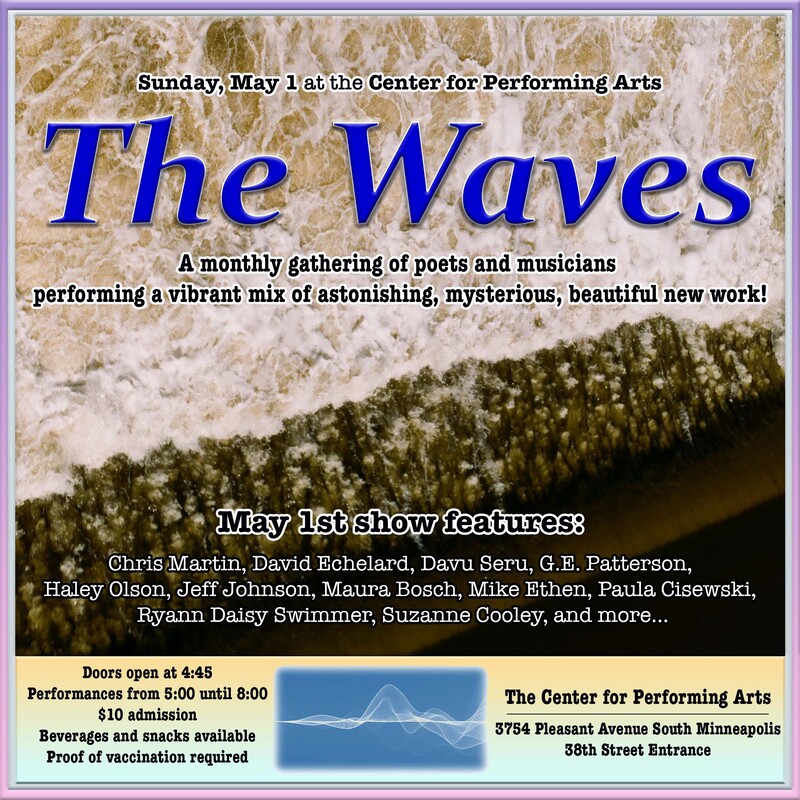
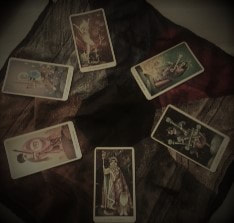
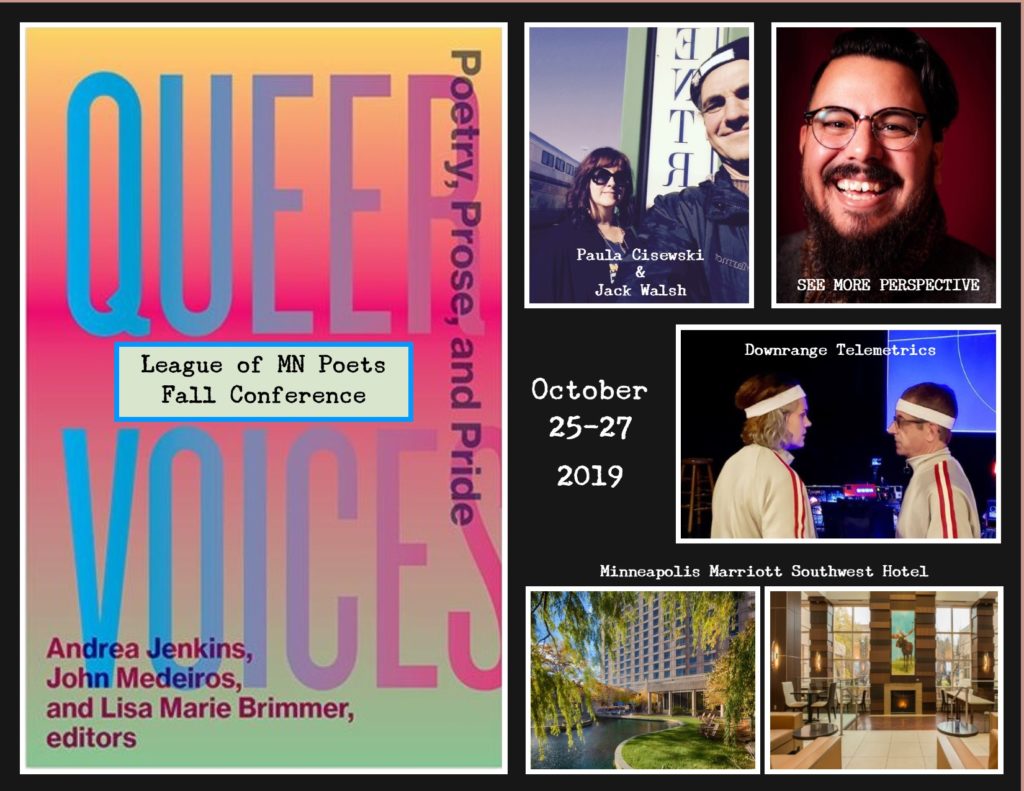
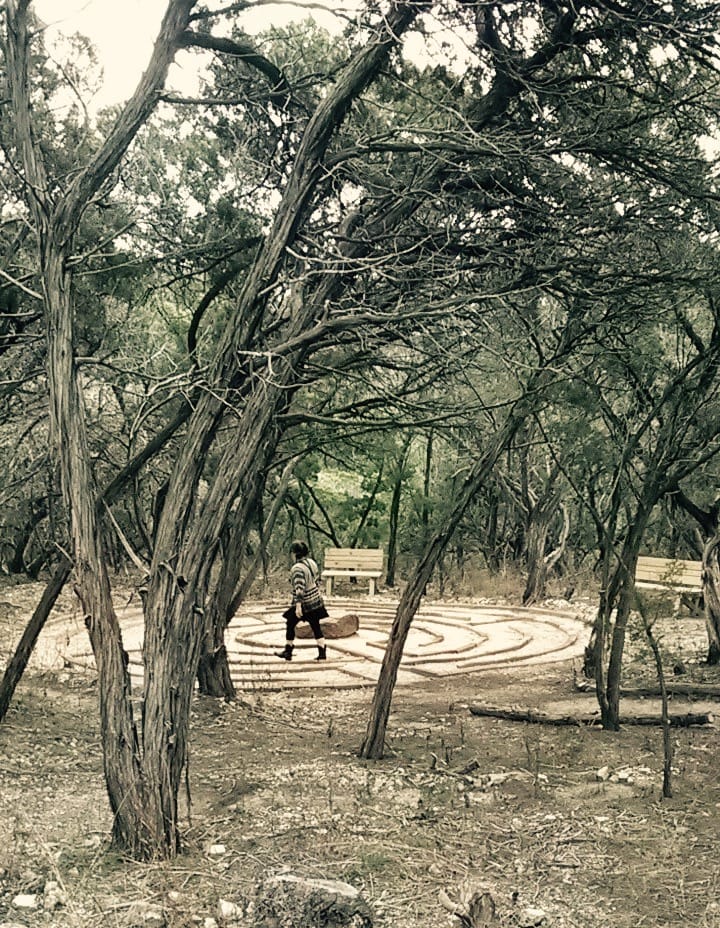
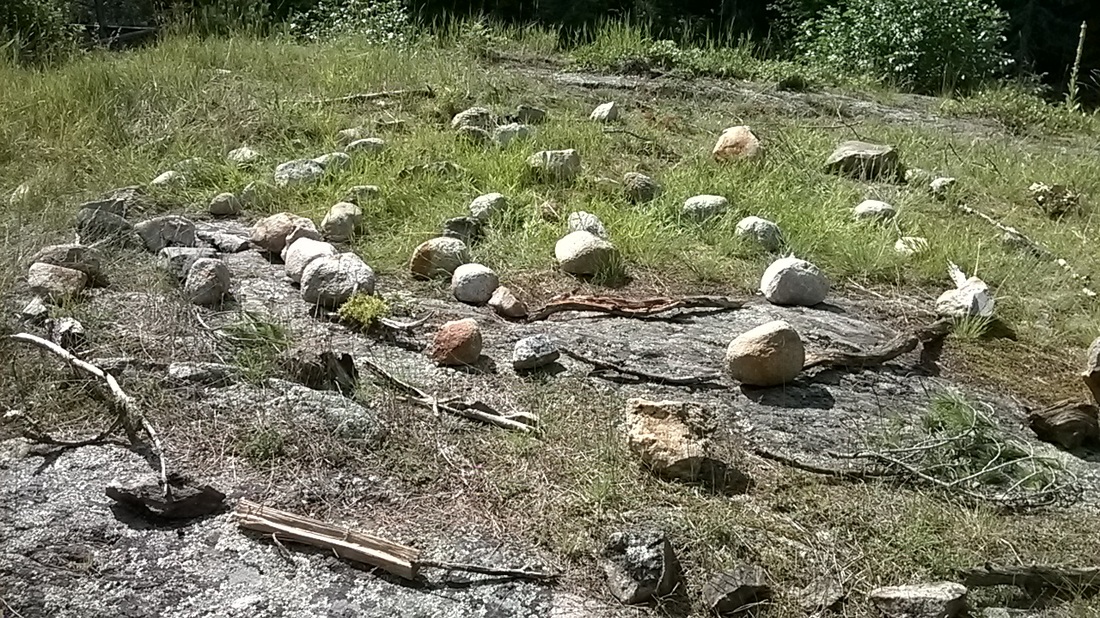
 RSS Feed
RSS Feed
